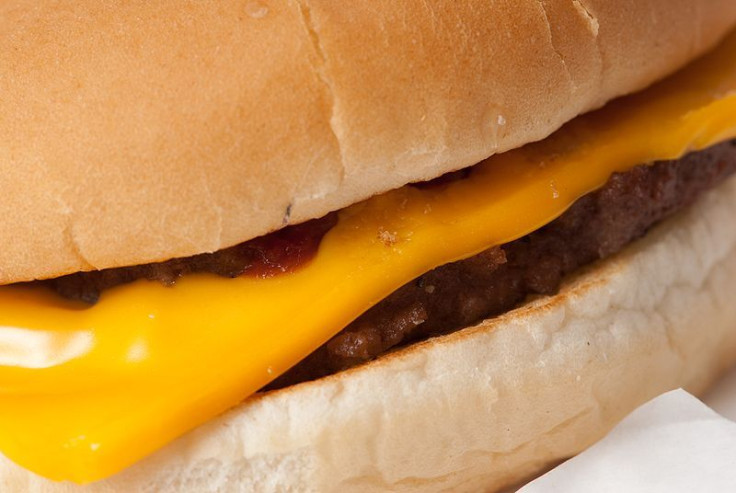McDouble Called The ‘Cheapest, Most Nutritious And Bountiful Food’ In Human History: How The $1 McDonald’s Hamburger Earns The Title

Long touted as the pinnacle of the American dream, then later renounced for its dangerous health risks, McDonald's has now reclaimed its status, according to some, as the golden arch-standard for the penny-pinching American dieter.
Stephen Dubner, co-author of the Freakonomics blog, along with fellow economist Steven Levitt, recently posed the question on the wNYC podcast, Freakonomics radio: What food did one reader, Ralph Thomas, call the cheapest, most nutritious and bountiful food that has ever existed in history? It's got 390 calories, 23 grams of protein, and seven percent of daily recommended fiber. And contrary to radio host Kai Ryssdal's best guess of "soy" or "tofu," the answer is, in fact, the McDonald's McDouble.
"You responded the way a lot of people respond," Dubner told Ryssdal, before mentioning he brought in a bunch of McDouble hamburgers for the wNYC staff to eat and comment on.
In the tape that Dubner plays, one woman says the hamburgers have "zero nutrition." Later, a man questions whether McDonald's engineers their own pickles.
One McDouble contains two all-beef patties, one slice of American cheese, two pickles, diced onions, ketchup, and mustard.
"They're a piece of synecdoche for American mass," said another man, "bland, synthetic corporatism."
Dubner, whose blog explores "the hidden side of everything," said that where people fall on the debate over the McDouble's status as the cheapest, most nutritious, and bountiful food actually reveals a lot about how that person sees the world, and "not only our food system, but also the economics of it and even social justice."
The Great Debate
To delve deeper into this notion, Dubner set up a debate between Tom Philpott and Blake Hurst. Philpott runs a smart-farming education center in the mountains of North Carolina, is in favor of organic farming, and has argued that the meat industry abuses animals and that McDonald's underpays its workers. Hurst, meanwhile, is a third-generation farmer from Missouri and has written extensively in the defense of modern farming, penning an article called "Don't Presume To Know A Pig's Mind."
Up for discussion are the claims laid in Thomas' original question, namely, whether the McDouble is the cheapest, most nutritious and bountiful food. With 14,000 restaurants in the United States alone, and priced somewhere between $1-2, the claims over cheapest and most bountiful bodes well for McDonald's. However, as Philpott explains, to get the end cost so low, there are number of external costs beforehand.
"In order to present to us all that $2 burger, you're talking about a vast army of working poor people," he says. "And that doesn't even get to the farmer who grew the corn and soy."
Hurst, who is a corn and soy farmer himself, concedes he and others could stand to get paid more. He also thinks the consumer benefits greatly from the reduced cost, especially given the ubiquity of the restaurant. According to The Economist, the United States ranks No. 1 on the Food Security Index, which measures how available food is to the public and reports that 85 percent of American families are "food secure."
While this number seems reassuring, Philpott wants to question how we are so secure — even introducing a challenger to compete against the McDouble for its lofty title.
"You can get a pound of brown rice, organic, and a pound of red lentils, for about two bucks each," he said. "And a cup of each of those things would be about seventy-five cents."
Of course, Hurst's reply highlights why the American consumer has bestowed the McDouble with its honor in the first place, and why we will continue to do so until market conditions change, if they ever do.
"Yeah, but I rest my case," Hurst said. "I'm sorry, there is no amount of marketing that is going to make me prefer brown rice and lentils over a McDonald's cheeseburger."
Published by Medicaldaily.com



























